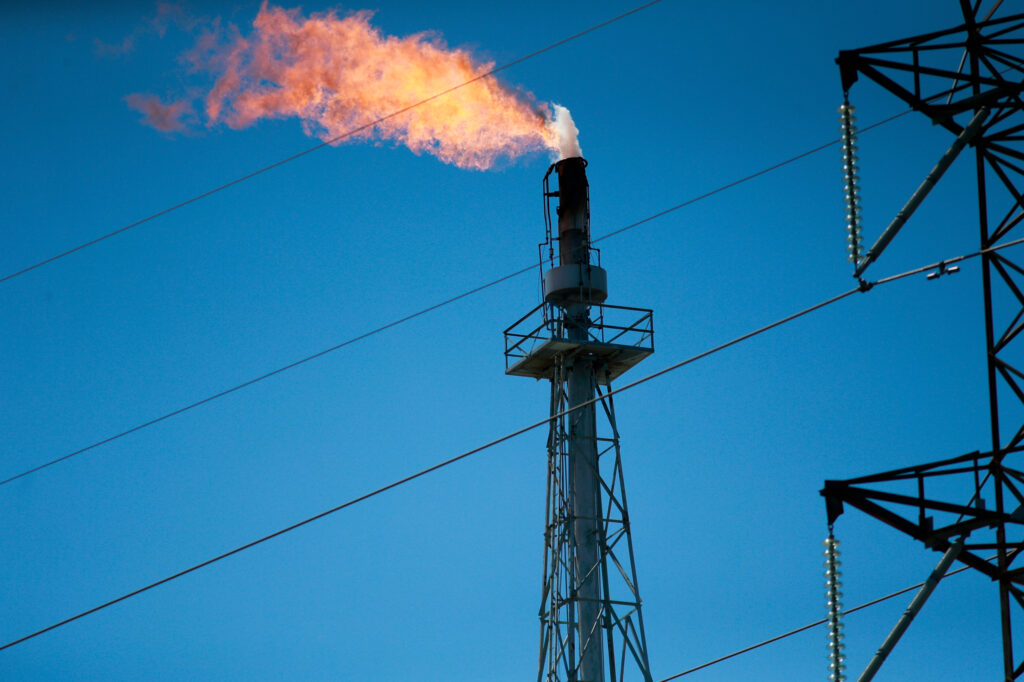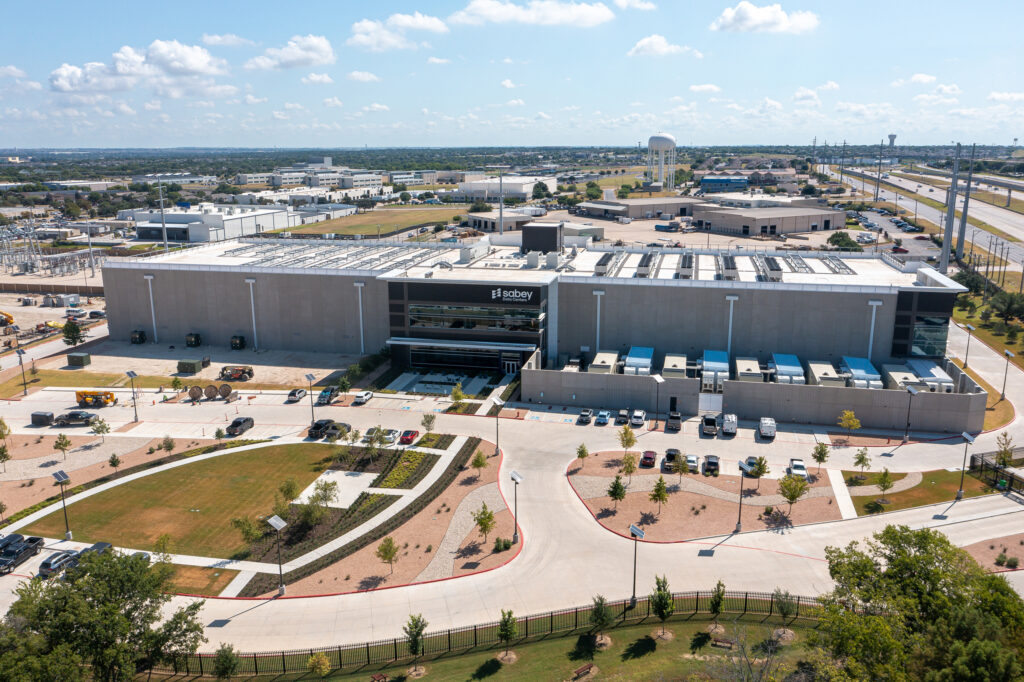RICHMOND, Va.–Gov. Glenn Youngkin vetoed two bills for the development of small solar projects and energy storage that had won bipartisan votes and support from Dominion Energy, environmental groups and farm and forestry representatives.
The bills would have encouraged private homes and companies to initiate solar projects and bolstered the existing utility’s efforts to capture electricity from renewable sources for later use. Dominion said in April, in an application to purchase electricity from third-party suppliers, that enhanced solar production and its own plans to store electricity would result in billions of dollars of fuel savings through 2035.
Youngkin has described himself as an “all-of-the-above” energy supporter with plans to support fossil fuel sources as well as renewable technologies. Critics said the vetoes last week raise questions about his commitment to clean energy and illustrate his disdain for the state’s landmark decarbonization law, the Virginia Clean Economy Act (VCEA).
The Republican governor, enthusiastic about the development of data centers in the state, has in the past year supported a proposed natural gas peaker plant and renewable sources to encourage such development. But Youngkin rejected the current legislation over his concern that ratepayers for existing utilities, which are reliant on fossil fuel, would bear in part the cost of increased solar production, according to a statement released Tuesday.
“He does not support legislation that puts rate payers at risk,” Peter Finocchio, Youngkin’s press secretary, said in an email.
Regarding battery storage efforts, Youngkin said that he was relying on market forces. “Long-duration energy storage is an expensive technology and if utilities believed it to be the best technology to meet demand, they would actively be seeking permission to build them. We must be vigilant to limit cost increases to Virginia’s residents,” he said in a “veto explanation” released on a state website.
Josephus Allmond, a staff attorney at the Southern Environmental Law Center, said the governor’s action fit a pattern. For months, Youngkin has supported legislation to weaken the VCEA or completely repeal it, he said.
“I think the amendments just show who he truly is: not an ‘all-of-the-above’ guy. He just doesn’t like clean energy,” Allmond said. “It’s disappointing that the governor chose to engage with [the energy legislation] in such an unserious way. We thought we had good meetings.”
Dominion Energy spokesperson Aaron Ruby did not respond to requests for comment.
Legislation sponsored by Del. Katrina Callsen (D-Charlottesville) and Sen. Schuyler VanValkenburg (D-Henrico) would have increased small solar projects to further diversify the state’s energy mix. “Regrettably, Governor Youngkin’s veto indicates a prioritization of political motives aligned with Washington rather than the interest of Virginians,” Callsen said in a statement.

The VCEA, passed in 2020, mandates that Dominion and Appalachian Power Company have carbon-free energy portfolios within three decades. The state utility regulator oversees an evolving system of credits that encourages utilities to shift from fossil fuels to renewable energy production.
Beginning in 2021, Dominion was required to obtain renewable energy credits, equaling a percentage of its electricity sales, from renewable energy sources. Dominion satisfied its annual credit requirement, including a 1 percent stipulation for small solar projects, according to a 2023 regulatory filing. Callsen and VanValkenburg’s bill aimed to increase credit payments toward small solar projects and, in turn, generate such projects. Under the bill, Dominion would have been required by 2028 to pay 5 percent in renewable energy credits for small solar projects.
From 2029 through 2031, and every three years after, the state utility regulator would have set the energy credits levels for utilities.
The bill also considered some broader solar aims for Virginia. It sought more commercial solar projects, capable of providing up to 3 megawatts of electricity each, to comprise 1,100 megawatts in total. Those projects by private developers would contribute to the overall goal of 16,100 megawatts in solar power across the state by 2035.
Solar projects planned for brownfields, including landfills and former industrial sites that are underutilized, would have been required to have a capacity for 600 megawatts, tripling the current 200-megawatt minimum.
Dominion Energy, which supplies electricity in parts of Virginia, North Carolina and South Carolina, supported the expansion of home solar users in part because the utility could benefit. The bill would have extended a deadline for Dominion to recover costs for its strategic program to install distribution lines underground from 2028 to 2032, and delayed a demand for Dominion to recover deficiency payments, or penalties for shortfalls in obtaining credits, from ratepayers. The utility expects an offshore wind project to be operational in 2026, which would offset its credit payments.


Youngkin, in his veto memo, balked at the renewable credit plan. Customers would likely have to bear the cost of Dominion’s renewable payments, he said, equalling billions of dollars over 10 years.
Allmond, of the Southern Environmental Law Center, said Youngkin’s cost numbers were inflated and ignored the benefits of new renewable sources, “including lower fuel costs.”
“If you actually look at those benefits and put it in context—Dominion customers will pay over $20B for fossil fuel costs alone over the next decade,” Allmond said in an email. “That number … does not include the health costs that those fossil fuels impose on the communities in which they are combusted.”
Clean energy industry representatives saw the veto as a lost chance. The bills would have increased an individual’s options for solar at home—by adding rooftop panels—and ease the overall demand in the state, said Jim Purekal, a director at Advanced Energy United, a national trade organization that represents clean-energy companies.
“If I’m putting solar panels on my house, I’m not charging Joe down the road for the solar panels. I’m paying for the solar panels,” Purekal said. “The energy that I’m generating off of the solar panels, I’m contributing to the grid. I’m not asking for Joe to pay for my solar panels, I’m just asking Joe to pay for the electricity that I’m providing to the grid.”
This story is funded by readers like you.
Our nonprofit newsroom provides award-winning climate coverage free of charge and advertising. We rely on donations from readers like you to keep going. Please donate now to support our work.
Donate Now
There are costs to changing the energy landscape, but time eases the burden, according to a recent report by the federal Energy Information Administration. “Distributed generation systems often cost more per unit of capacity than utility-scale systems,” it said in a 2024 report, but noted that savings would follow.
“Cost reductions are expected to continue in the coming years as component markets stabilize, component efficiencies continue to improve, customers and developers take advantage of federal and state incentives, and developers achieve economies of scale through alternative sales strategies,” the report said.
The second veto affected an energy storage and distribution bill, joint legislation from Del. Rip Sullivan (D-Fairfax) and Sen. Lamont Bagby (D-Richmond).
Their bill would have almost doubled traditional battery facility targets for Dominion as well as Appalachian Power Co., which serves a million customers in West Virginia, Virginia and Tennessee. Dominion’s goal for battery storage facilities would have increased to 5,220 megawatts from 2,700 megawatts. Appalachian Power’s goal would have risen to 780 megawatts, from 400.
The bill would have also created long-duration energy storage targets so that electricity could be dispatched over a 10- to 24-hour period, including when sunshine and wind are not available.
Sullivan described the veto as dismissive of clean energy and the VCEA: “The governor just couldn’t bring himself to do the right thing for Virginia.”
“Instead of signing 2537, or even suggesting to us constructive changes, which of course we’d have entertained,” Sullivan said, “he has used it to give the Clean Economy Act one last sort of derisive swipe at the back of his hand as he prepares to walk out the door toward his next campaign.”
Virginia’s utility regulator, the State Corporation Commission, had approved Dominion’s proposed construction of long-duration energy storage facilities in 2024. On April 15, Dominion was approved to purchase electricity from third-party storage suppliers.
In its application leading to the regulator’s approval in April, Dominion said its plan for a combination of solar and the storage projects would “result in fuel savings of approximately $6.6 billion over the period of 2022 through 2035. Fuel savings for the full lives of all resources in this Development Plan which extend through 2073 are approximately $118.5 billion.”
Tension over the VCEA has percolated for years. Youngkin has called the VCEA a “quagmire,” and Republicans have derided the VCEA as a force that will increase electricity costs. Environmental groups have consistently played defense to prevent weakening of zero-carbon goals.
Beyond the vetoes, Youngkin approved a bill from Sen. Ghazala Hashmi (D-Richmond) and Rep. Phil Hernandez (D-Norfolk) to expand a “virtual power plant” pilot program to be designed by the state regulator. The program would allow ratepayers to agree to share electricity with utilities during peak strains on the system. Utilities then would draw electricity from home or business battery storage devices and adjust on-site smart thermostats to ease demand on the electric grid.
Angela Navarro, a former State Corporation Commission judge who has since opened up her own energy policy law firm, said thousands of customers could participate and help cope with electricity demand and their own energy costs.
“It’s expensive to provide power during those peak events,” Navarro said. “There’s scarcity on the grid. You are providing value, you are alleviating some of that scarcity and therefore you should be compensated for it.”
About This Story
Perhaps you noticed: This story, like all the news we publish, is free to read. That’s because Inside Climate News is a 501c3 nonprofit organization. We do not charge a subscription fee, lock our news behind a paywall, or clutter our website with ads. We make our news on climate and the environment freely available to you and anyone who wants it.
That’s not all. We also share our news for free with scores of other media organizations around the country. Many of them can’t afford to do environmental journalism of their own. We’ve built bureaus from coast to coast to report local stories, collaborate with local newsrooms and co-publish articles so that this vital work is shared as widely as possible.
Two of us launched ICN in 2007. Six years later we earned a Pulitzer Prize for National Reporting, and now we run the oldest and largest dedicated climate newsroom in the nation. We tell the story in all its complexity. We hold polluters accountable. We expose environmental injustice. We debunk misinformation. We scrutinize solutions and inspire action.
Donations from readers like you fund every aspect of what we do. If you don’t already, will you support our ongoing work, our reporting on the biggest crisis facing our planet, and help us reach even more readers in more places?
Please take a moment to make a tax-deductible donation. Every one of them makes a difference.
Thank you,

















